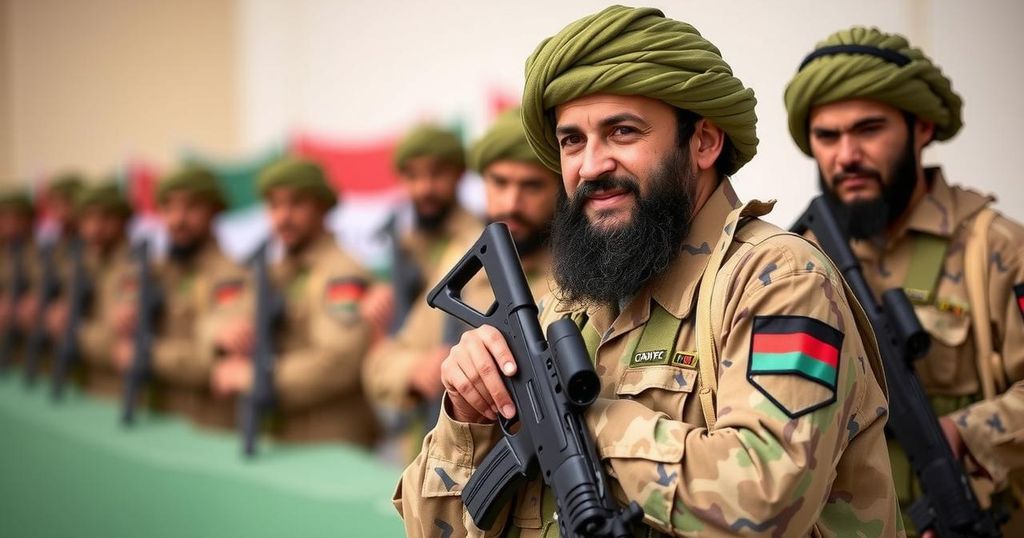Iran is strengthening its support for the Houthis in Yemen, enabling the militia to conduct sustained attacks on Israel and compromise global shipping routes. The Houthis currently control a significant portion of Yemen and continue to receive advanced military supplies from Iran, as global powers assess the rising threat of this coalition.
Iran is reportedly increasing its arms supplies to the Houthi militia, as Yemen’s military spokesman, Abdul Basit Al-Baher, noted that these resources will enable the group to sustain attacks on Israel and global shipping for an extended period. Recent activities include a significant escalation in missile strikes against Israel and ongoing threats to commercial shipping routes. Al-Baher attributed this surge in Houthi activity to Iran’s enhanced support in the wake of weakened proxies like Hamas and Hezbollah in the Middle East.
He highlighted the Houthis’ possession of advanced missiles and aircraft, along with facilities capable of assembling drones and manufacturing missiles, leveraging Iranian technology. Al-Baher indicated that Iran’s continuous smuggling of weapon components has ensured the Houthis’ operational longevity. Recent missile assaults on Israel went uninterrupted despite aggressive Israeli and Allied responses targeting Houthi weapon infrastructure.
Amidst ongoing conflict, the Houthis control approximately 80 percent of Yemen’s population areas, clashing frequently with forces loyal to the internationally recognized government. According to Mr. Al-Baher, eliminating Houthi leader Abdul-Malik al-Houthi would be critical to crippling the group’s military effectiveness, a sentiment echoed by Israeli security analysts.
Moreover, Ali Alboukhaithi, a former Houthi spokesperson, suggested that while the group maintains a formidable weapon stockpile, resources directed against Israel are limited and predominantly supplied by Iran. Iranian backing has reportedly strengthened the Houthis’ capabilities, particularly to target Tel Aviv.
Israeli intelligence officials acknowledged their prior oversight of the Houthi threat and emphasized the challenges of gathering intelligence on the group, necessitating collaboration with local tribes and the Yemeni government.
As political dynamics shift with Donald Trump assuming office, expectations rise regarding enhanced U.S. military actions against the Houthis. Experts suggest that the Houthis’ integration into Iran’s broader strategies against Israel poses significant challenges that the incoming administration will need to address.
The article discusses the strategic relationship between Iran and the Houthi militia in Yemen amidst evolving dynamics in the Middle East. As Iranian support for the Houthis increases due to the decline of other proxy groups, the Houthis have intensified their military operations, particularly against Israel. This situation is complicated by the ongoing Yemeni civil conflict, where the Houthis control significant territory, further supported by Iranian military technology and supplies.
In summary, the Houthis appear to be in a stronger position due to Iranian backing, enhancing their capability to launch sustained attacks against Israel and threaten international maritime security. The Yemen conflict’s complexities are exacerbated by Iran’s growing influence, making the Houthi leadership a crucial target for potential military strategies aimed at restoring stability in the region. As U.S. policy shifts under new leadership, the implications for regional security warrant careful consideration.
Original Source: www.telegraph.co.uk






